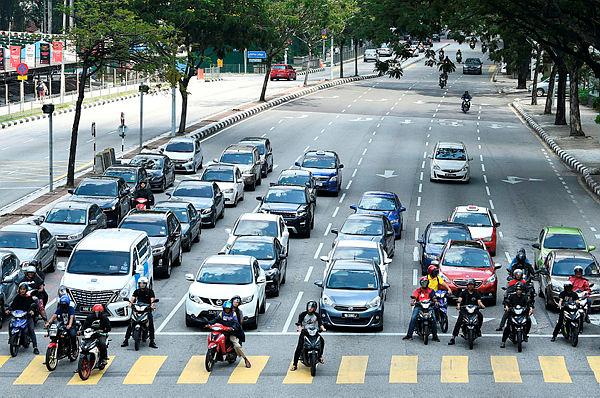PETALING JAYA: The National Association of Private Educational Institutions (Napei) has called on the Education Ministry to incorporate road safety into school curriculums.
Its secretary-general Dr Teh Choon Jin, who is also senior director and registrar at Asia Pacific University of Technology and Innovation, said the call is based on various studies that have been conducted.
“The Malaysian Institute for Road Safety Research (Miros) has provided compelling evidence supporting the effectiveness of integrating comprehensive road safety education into the national curriculum.
“Its findings underscore the fact that students who are armed with a sound understanding of road safety adopt safer behaviours on the road.”
While Teh said the impact of road safety education varies based on the age and gender of the students, it is imperative to impart road safety education throughout the academic journey.
To sustain and fortify favourable behaviour, he said it is essential to consistently advocate and support road safety education initiatives.
He added that initiating such education from Year One and continuing through secondary schools “is essential”.
“This strategy aims to instil road safety habits and attitudes from a young age and nurture the students’ habits into adolescence,” Teh said.
Beginning the awareness campaign in primary schools is pivotal, as it lays the foundation for responsible behaviour on the road.
He said it is crucial to target students aged between 13 and 17 as those aged 16 can obtain a motorcycle licence.
It becomes imperative to focus on reinforcing road safety behaviour, emphasising the consequences of risky actions and promoting responsible decision-making on the road.
He said road safety education in primary schools across Malaysia still adopts conventional teaching and learning methods without computers or mobile-based applications as a supplement.
To enhance the educational experience, Teh suggested that the ministry introduce road safety courses that integrate multimedia, augmented reality and virtual reality technologies.
“This can aid teachers and students in better comprehending and acquiring essential road safety skills.”
Teh said educators can effectively engage students in road safety discussions by employing various strategies.
Integrating interactive activities, such as role-playing scenarios and hands-on demonstrations of safety measures, including helmet usage, could make the discussion more engaging,
“Incorporating real-life stories and testimonials relevant to the Malaysian context can further enhance students’ understanding and retention.”
He said fostering collaboration among parents, the community and schools is essential to promoting road safety education.
Teh added that parents can engage with teachers to reinforce lessons at home and support the various initiatives.
“However, parents should show good examples when they are on the road as well,” he said.
Road safety cannot be overlooked particularly in enforcement, education, road infrastructure development, vehicle safety, public transport, post-crash management and data management.
He said an effectively designed road safety curriculum that is implemented within educational institutions can exert substantial influence on the collective safety consciousness of students and their communities.
Alliance for Safe Community chairman Tan Sri Lee Lam Thye agreed with Teh’s suggestions, reiterating that road safety must begin in schools.
However, he said schools are not focusing on road safety as there is a shortage of teachers who are well versed in road safety education.
“We should return to the earlier days when teachers were more involved in road safety,” Lee added.









